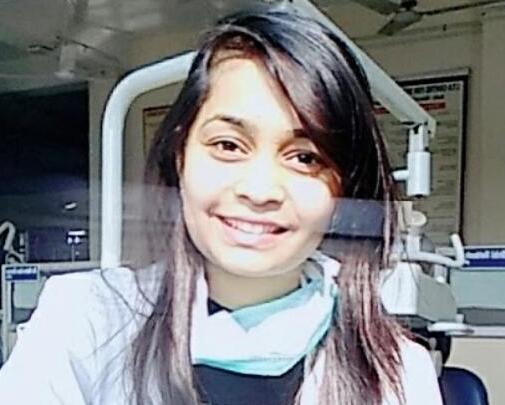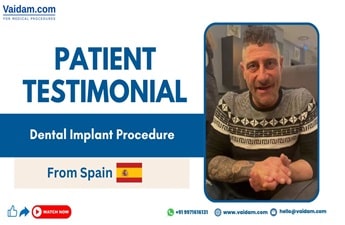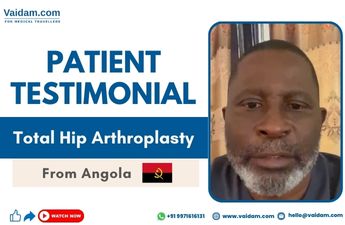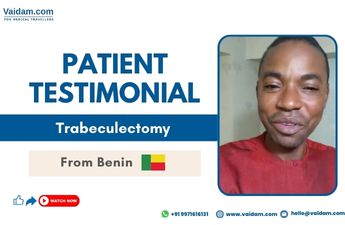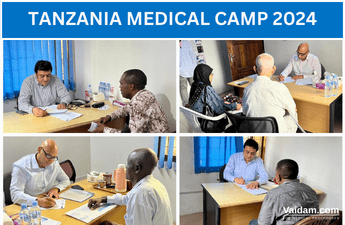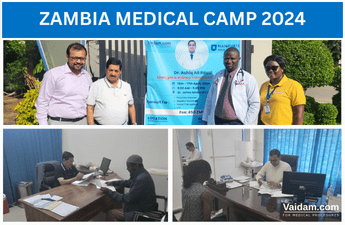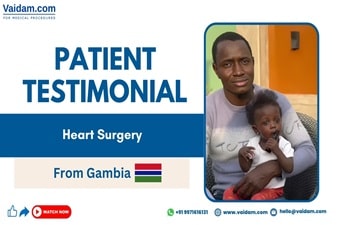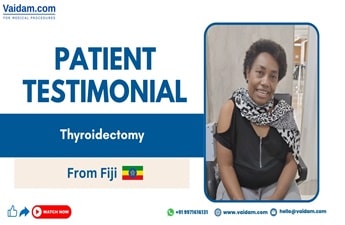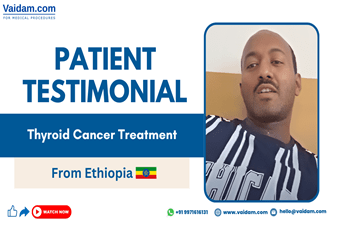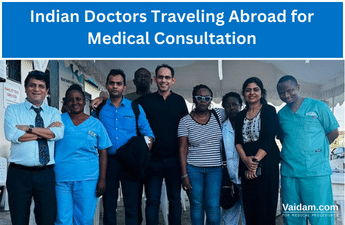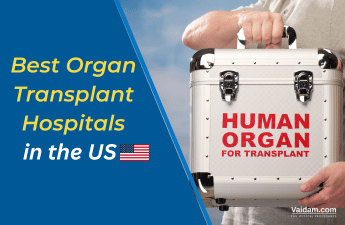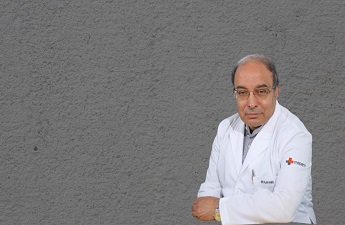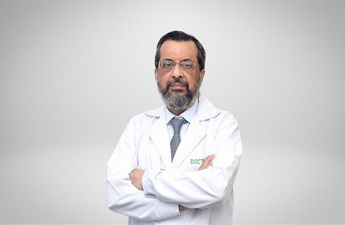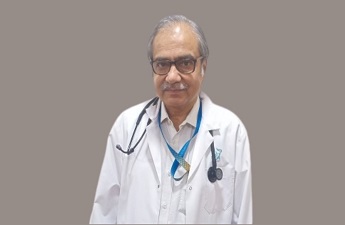Turkey holds a rich history of renal transplants since 1975. While the first living renal transplant was performed in 1975, the deceased donor kidney transplant took place in 1978 using an organ by Eurotransplant. Since then, successful kidney transplants have been conducting in Turkey.
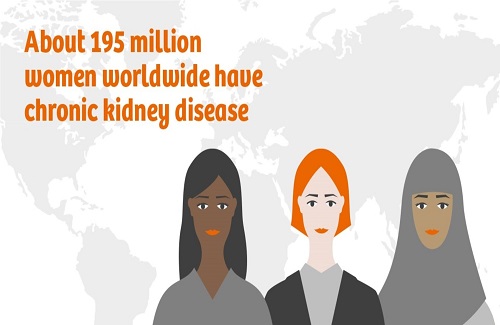
Earlier, the medical team had to face numerous challenges during kidney transplantation as there had been many times when the body rejected the donor organ. However, in Turkey, anyone who is 18 years or above can donate their kidney but should represent some legal proof of how he/she is connected to the recipient. This has led to lesser chances of kidney rejection. These factors have made kidney transplants successful in Turkey.
Get in Touch with Medical Experts
Prerequisites To Know Before Kidney Transplant
Like any other surgery, kidney transplant is a major surgery that needs an evaluation by a transplant center to decide whether you are ready for the transplant. If the medical team gives a green signal, then the process proceeds with finding a donor match, kidney transplant cost, knowing about the pros and cons of the surgery, preparing for the surgery itself and more.
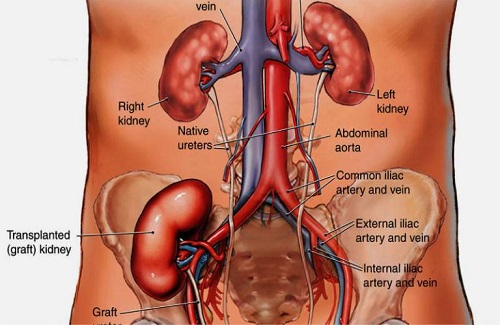
Pros and Cons of Kidney Transplant
- Kidney transplant works when other treatments such as dialysis, medications, etc. fail.
- Most transplant occurs in case of kidney failure. A kidney transplant increases your chances of surviving a healthy, longer life as compared to the ones who are on dialysis. Also, health kidneys improve the quality of life if you closely follow the doctor’s instructions.
- Talking about risks or cons, then the risks are associated with kidney transplant surgery like any other surgery. Risks do not mean that they will definitely happen, it means they have the probability to occur. Some of the possible risks are the infection, bleeding, damage to organs or organ rejection. These should be discussed with the medical team before and after the surgery.
Finding a Donor
- Before a transplant to take place, the transplant team conducts some tests to find a suitable donor.
- The donor is selected on terms that the kidney matches with the other organs and tissues in your body so that your immune system accepts it and does not attack it. The immune system mainly protects your body from foreign bodies and gets rid of it by keeping your body healthy. The same happens with the transplanted kidney if it were a disease.
Transplant Team
The transplant team comprises medical professionals who work together to perform a successful kidney transplant surgery. They closely focus on your medical care before and after the surgery. The team mainly consists of:
- Transplant coordinators who perform the evaluation test prepare the patient for surgery, plan the treatment and organize a follow-up care post-surgery.
- The physicians who prescribe medications before and after the surgery and are not surgeons.
- Then comes, the surgeons who actually perform the surgery and work closely with the team.
- The nursing team plays a major role in the patient’s recovery process.
- The dietitian team decides the best, nutritious diet for a patient throughout the journey.
- Social workers who help the patients emotionally and physically before and after the surgery.
Transplant Surgery
- The surgery mainly decides on the type of donor - living or deceased.
- If you have a living donor, then the surgery takes place as early as possible.
- If you have a deceased donor, then you have to wait for the kidney to become available.
- Once the donor’s kidney becomes available, then you have to go through a blood test to ensure that you don’t have a bad reaction or rejection of it. If the blood test results are positive, then the team prepares for the surgery.
- Once the surgery is done, you will be watched closely and kept under supervision by the team for a few days. You will be given immunosuppressant medicines to check if you’re accepting the new kidney.
- Once recovered, you’re discharged to go home. However, you need to follow the instructions provided by your team for a full recovery as it may take six to eight weeks to fully recover.
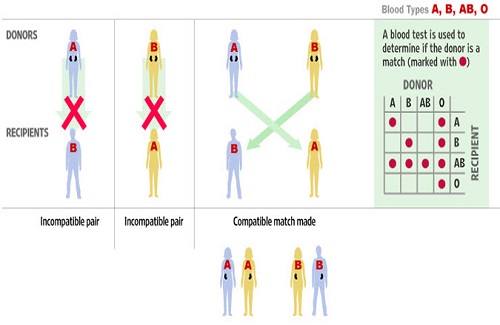
Where Does Turkey Stand in the World in Terms of Kidney Transplantation?
Turkey is gradually becoming a key health tourism hub for organ transplants because of skilled medical personnel and upgraded health infrastructure. Turkey has been investing heavily in the health sector to improve its service quality and boost health tourism.
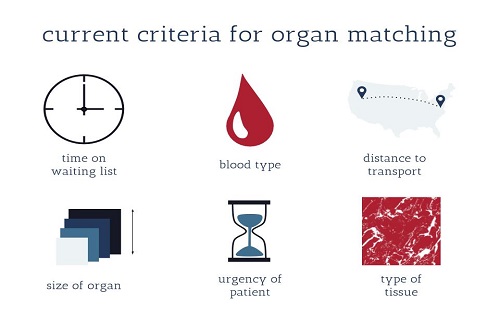
- Role of Turkish Ministry of Health: The Health Ministry confirms that there were 359 foreign transplants in 2017 which rose to 589 organ transplants in 2018. (Source: https://www.dailysabah.com/turkey/2019/01/18/turkey-rises-as-key-organ-transplant-hub-draws-many-foreign-patients)
- The Turkish Ministry of Health plays an essential role in checking the hygiene level of hospitals and transplant centers regularly. Due to this fact, there has been an increasing number of donors available across the country.
- Improved Survival Rate: Turkey has a high survival rate as compared to other western countries such as Europe, Asia, Africa, and the United States. Low treatment costs and zero waiting times due to the availability of donors have made Turkey possible to be preferred by a number of medical tourists around the globe.
- Best, Preferred Cities: Most tourists prefer Istanbul as the best city for kidney transplantation followed by Turkey’s capital - Ankara. Both cities have top-notch, world-class hospitals with well-planned infrastructure and good means of transportation.
- Highly-experienced Medical Personnel: Not only the government and Health Ministry are doing efforts to boost medical tourism in the country, but the doctors and surgeons are also providing top-quality kidney transplantation facilities. These surgeons are highly-qualified from prestigious universities and institutes in the world and hold a great professional experience in their respective expertise.
- Hospitals and Medical Centers: The hospitals and transplant centers are well-equipped with the latest, advanced technology to provide medical facilities of top quality. The hospitals provide comprehensive care to patients throughout their treatment journey.
- ‘Cost’ Factor: Low treatment costs is an answer to why people prefer Turkey for their medical treatment. The cost of kidney transplant surgery in Turkey is comparatively lower and affordable to other developed and western parts of the globe.
Types of Kidney Transplants Available in Turkey
- In Turkey, living donor kidney transplant majorly accounts for all kinds of transplant surgeries. However, donors who are cancer patients, diabetic patients, pregnant, have an active infection, kidney disease or any other organ failure are not eligible to donate a kidney.
- Somehow, donors who are hypertensive are eligible only after all relative examinations are done and given a green signal by doctors.
- As only living donor kidney transplant happens in Turkey, therefore, the waiting period depends on when the donor becomes available.
- Also, transplant surgery is performed on patients with end-stage chronic renal disease.
- As kidney transplantation improves the quality of life, hence, doctors recommend kidney transplants as early as possible for which the donor should be available without any need to wait longer.
- Hence, the donor who meets the required legal and above-mentioned medical conditions is a suitable solution for the surgery immediately. This is how the organ transplant works in Turkey.
What are the Pre-Surgery Medical Tests Conducted Before the Transplant?
To avoid infections and organ rejection, there are some standard tests that are done before the transplant takes place and they are:
-
Blood Test - A match is suitable if the donor and recipient have the same/compatible blood types. This increases the chances of accepting the new kidney by the recipient. To avoid the risk of infections and organ rejection, the transplant team ensures that the new kidney is transplanted from someone whose blood type matches with yours.
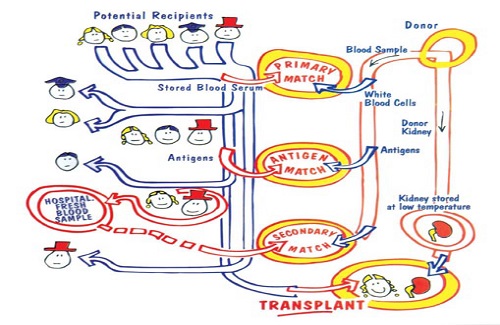
| If the recipient’s blood type is | Then he/she can get a kidney from someone whose blood type is |
| O | Only O |
| A | A or O |
| B | B or O |
| AB | A, B, AB or O |
- Tissue Typing(or genetic typing): After blood tests, a tissue typing test is a blood test that is performed to tell the number of antigens the donor and recipient match. These antigens help in differentiating between two people’s body tissue. Every person has six basic tissue typing antigens shared equally from their parents. The best match occurs when all of the six antigens match. However, it is not necessary for a transplant to occur, all of the six antigens match. Even if one antigen matches, then it can also make a transplant successful.
- Cross-matching: It is another blood test to test the compatibility of the donor’s and recipient’s blood. It takes 45 minutes to an hour. It is a trial transfusion done in a test tube to check the potentiality of the donor’s blood with the recipient’s. If there is no reaction, this implies that the transplant can take place.
- Also, if you pass all the tests and the cross-matching test comes out to be positive, then the surgery can not take place at any cost.
- Other Additional tests: There are some usual tests that take place during the evaluation and they are:
- Thorough physical exam
- Blood tests
- Electrocardiogram, if you’re 50 years old or above
- 24-hour urine collection
- CT (computed tomography) scan
- Follow-up blood test within three to seven days post-CT-scan
- Chest X-ray
Documents Required For Kidney Transplantation In Turkey
- Turkey ranks among the top three countries in the world in kidney and liver transplants from live donors. Most transplant surgeries account for a considerable number of all kidney transplant surgeries.
- According to sources, the number of transplants from live donors is five times than of the deceased ones.
- These statistics have been possible due to the maximum number of live donors available.
- In Turkey, 18 years old or above are eligible to donate a kidney. The donor must be related to the recipient such as a spouse, relative or friend. The donor should be healthy and is free from diabetes, any active infection, any kind of cancer, kidney disease, and any other organ failure. Also, pregnant women are refrained from donating a kidney.
- In the case of cadaveric donations, then it has to be in writing from the deceased before death or some close relative.
- In the case of the unrelated donors (friends or distant relatives), transplants are subject to Ethics Committee approval.
- The ones who meet the above-mentioned medical and legal requirements are eligible to donate a kidney in Turkey.
What Is The Average Cost of Kidney Transplantation In Turkey?
The cost of kidney transplantation in Turkey starts from 121,930 TRY (USD 21,000 ). It is preferable to opt for a kidney transplant as compared to dialysis which is quite inconvenient and costly as the patient has to go to the hospital every other week. The Turkish Ministry of Health has planned short-term and long-term plans for patients to reduce the cost and improve the quality of life.

However, the cost varies depending on numerous factors and they are:
- Surgeons’ and doctors’ fees
- The number and type of compatibility tests conducted between the donor and recipient
- The total duration of hospital stay
- Number of days spent in the ICU
- Cost of dialysis (if required)
- Post-surgery visits for follow-up care
Cost Comparison With Other Countries
Kidney transplant varies from country to country depending on the above-mentioned factors.
| Country | Cost in Turkish Lira | Cost in USD |
| Turkey | 104,601-145,280 TRY | $18,000-$25,000 |
| Israel | 580,870-638,957 TRY | $100,000-$$110,000 |
| Philippines | 469,923-598,296 TRY | $80,900-$103,000 |
| Germany | 638,957-697,044 TRY | $110,000-$120,000 |
| USA | 1,684,523-1,941,848 TRY | $290,000-$334,300 |
| UK | 348,522-444,365 TRY | $60,000-$76,500 |
| Singapore | 207,951-235,252 TRY | $35,800-$40,500 |
What Are The Kidney Transplant Rules In Turkey?
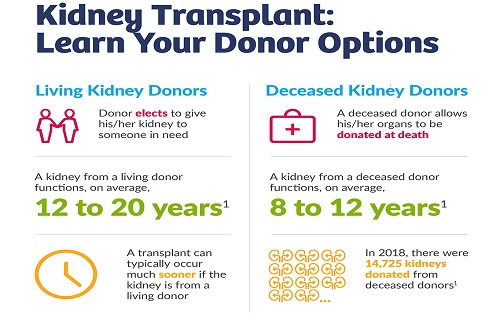
For kidney transplant, the recipient must have a donor available during the surgery. The donor must meet the legal requirements for the surgery to proceed and they are:
- The donor must share a bond with the recipient for at least 3 to 5 years.
- In the case of a spouse, they must bring some legal proof such as marriage certificate, photographs, etc.
- In the case of a distant/close relative, they must bring proof which represents how they are connected.
- The donor can also be your fourth-degree relative.
In Turkey, living donor transplants majorly accounts for all kinds of transplant surgeries.
How to Prepare for Complications That May Arise Post-surgery?
Kidney transplantation cures advanced kidney disease and kidney failure. However, in some cases, the complications may return in some forms of kidney disease even after the transplant.
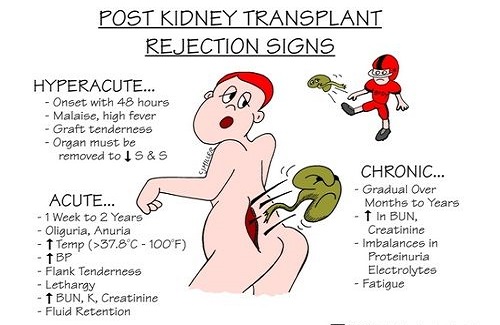
There are some health risks that are directly related to the surgery itself and they are:
- Infection around the stitches
- Formation of blood clots
- Bleeding
- Infection that can be transmitted from the transplanted kidney
- Blockage of the tube (ureter) that connects the kidney to the bladder
- Heart attack
- Failure or rejection of the new organ
- Stroke
- Or even, death
Also, after kidney transplant, your doctor may prescribe medications that will help your body to prevent organ rejection. These prescribed medications can also cause a variety of side-effects such as:
- Osteoporosis (bone thinning)
- Osteonecrosis (bone damage)
- High blood pressure
- High cholesterol
- Excessive hair growth
- Hair loss
- Acne
- Weight gain
- Infection
- Prone to cancer
- Puffiness
Getting a kidney transplant is like getting a second chance in life. To keep your kidneys functioning, you need to closely follow your doctor’s instructions.
Immunosuppressant Medicines
- New kidney rejection is one of the major risks associated with transplant surgery.
- This happens when your immune system realizes that the new kidney is not part of your body and wants to get rid of it. To prevent such situations, your doctor may prescribe medications called immunosuppressants or anti-rejection medicines.
- However, if you’re unfortunate enough, these prescribed anti-rejection medicines may cause side-effects as they reduce the strength of your immune system or stomach upset.
- Even though these immunosuppressants cause side-effects, they are quite important to keep your kidneys working and healthy. Hence, you need to talk to your doctor as soon as you experience any side-effects.
Anxiety or Depression
- Transplant surgery brings a major change in your life. Therefore, it is normal to experience anxiety, depression or to drain emotionally. However, in such situations, do not feel stressed or alone.
- There might be mood swings or changes due to the intake of immunosuppressants.
- You may feel anxious about how you cope up with your new kidney.
- In such scenarios, reach out to your family and friends or let your transplant team know about your emotional changes for the generous support, mentally and emotionally.
Kidney Rejection
- Most kidney transplants are successful as they happen before undergoing a number of compatibility tests.
- However, there may be cases when the new kidney is rejected shortly after being placed in your body or after months or years.
- When rejection occurs within the first three to six months, then it is acute rejection. Approximately 1 in 20 transplant surgeries, the patient suffers acute rejection.
- When rejection occurs slowly over the years after the new kidney is being placed, then it is chronic rejection. It happens because your immune system is continuously fighting it.
- To avoid such risks, immunosuppressants are also prescribed that are also called anti-rejection medicines.
- Contact your doctor or transplant team if you experience any changes in your body after transplant. Your doctor may change the dose of anti-rejection medicines to treat the problem.
Some of the signs and symptoms of kidney rejection are:
- Body aches
- Chills
- Headache
- Swollen ankles
- Fatigue
- Pain over the treated area
- Sudden weight gain or loss
- High fever
- High blood pressure
If you notice such changes in your body, contact your doctor right away.
Life After Transplant - How To Stay Healthy
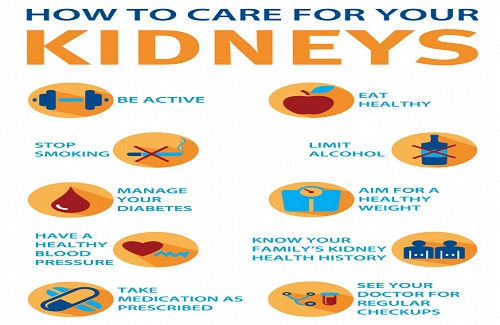
Once the surgery is done, you need to follow a healthy lifestyle and nutritious diet to stay healthy and keep your kidneys in functioning mode.
- Avoid infections: After surgery, your immune system is highly suppressed and weakened, which makes you prone to develop infectious diseases. Your doctor may ask you to avoid crowded places and social gatherings where you can catch infections easily.
- Stay hydrated: Drink water as much as you can and limit caffeine. It is advisable to drink 2 liters per day. Staying hydrated is the best formula to recover soon.
- Diet: Eat a well-balanced diet including protein as it helps build muscle and recover weight loss. Contact your doctor or dietitian to plan a healthy diet for you. Also, avoid grapefruit and its juice as it contributes to suppressing the immune system. Eat foods low in fat, calories, salt, and cholesterol.
- Say ‘No’ to raw or under-cooked foods: By having raw or under-cooked foods, you may face several digestive or intestinal problems due to a weakened immune system. Therefore, avoid such foods post-surgery.
- Exercise: If you’re planning to get to your normal routine or exercising, then contact your transplant team as they may advise you to wait for six to eight weeks after surgery. Also, begin with low-strength workout and then you can proceed accordingly once you’re given a green signal by your transplant team. It takes at least a year to fully heal and get back to your normal routine.
- Skip on Over-The-Counter Medicines: Don’t take over-the-counter medicines as it can make your kidneys dysfunctional.
Read: How to adjust your life after a kidney transplant
Top Hospitals for Kidney Transplantation in Turkey
1. Medicana International Hospital

Medicana Group holds a great position in the healthcare sector in the capital of Turkey. The hospitals provide world-class services in all medical departments. They have highly-experienced doctors and surgeons for kidney transplantation.
2.Florence Nightingale Hospital, Istanbul
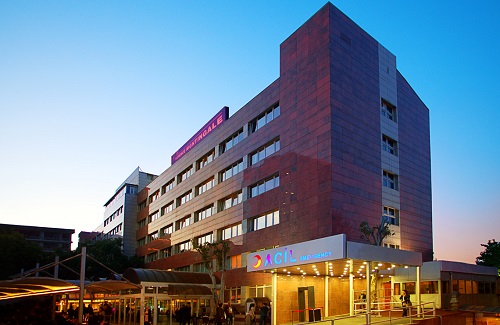
It is one of the comprehensive private hospitals that offer qualitative diagnosis and treatment to patients around the globe.
3. American Hospital

It is a super-specialty hospital providing reliable and high-quality healthcare services in various medical specialties. It has well-experienced doctors and surgeons to supervise every medical department.
4. Acibadem Hospitals Group

It is the world’s second-largest healthcare chain contributing to the maximum number of transplant surgeries performed by surgeons. The hospital has a team of 3,500 doctors and 4,000 nurses.
5. LIV Hospital, Istanbul
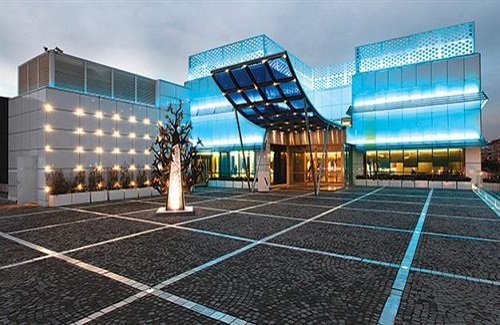
With 159 beds, 50 clinics, and 8 operating beds, the hospital holds the 4th place as the authorized center for robotic surgery after American centers.
Leading Doctors for Kidney Transplantation in Turkey
- Dr. Gokhan: He is a well-known Nephrologist associated with Memorial Atasehir Hospital. He holds 9 years of experience in his field of specialization.
- Dr. Volkan Turunc: He is a highly-experienced Organ Transplant Surgeon. He is currently associated with the Medicana Healthcare group. He has 12 years of experience and won several awards and recognition.
- Dr. Hamdi Karakayali: He is a coveted General Surgeon and holds great experience in organ transplantation. He is currently working with Acibadem University Hospital, Atakent. He has 25 years of experience as a general surgeon.
- Dr. Hasan Tasci: He is a well-known Kidney Transplant Surgeon with 33 years of experience. He has been associated with several hospitals and medical institutes in the past.
- Dr. Ulkem Cakir: She is a well-experienced Nephrologist at Acibadem University Hospital, Atakent. She has 27 years of experience in her profession and written several research papers.
Success Rate of Kidney Transplantation in Turkey
- Due to the availability of highly-experienced medical personnel and nursing staff, the success rate of kidney transplantation in Turkey started a long time ago.
- Patients from well-developed parts of the world come to Turkey to receive affordable and high-quality medical treatment.
- According to the hospital’s statistics, the success rate of the living donor transplant is almost 99% and the patient feels no discomfort or dissatisfaction.
About Vaidam Health
Vaidam Health is a medical tourism company that plays an essential role in planning your medical journey in Turkey. It arranges everything from treatment to travel including airfares, doctor’s appointments, the cost estimates of treatment, accommodation and even, sight-seeing post-treatment. It has a patient-relation team that plans your treatment in a way that won’t burden your pockets and financial status.


